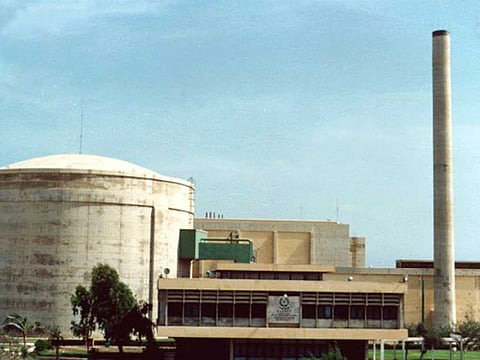Pakistan’s overall ranking improves in Nuclear Security Index 2023
Ranking attributed to country’s ‘continued commitment to nuclear safety and security’

Islamabad: In the latest Nuclear Security Index 2023, Pakistan has achieved an upgrade in its status, indicating consistent progress in securing nuclear materials and facilities.
The report, compiled by the US-based Nuclear Threat Initiative (NTI), measures countries’ nuclear security capabilities and efforts based on a set of indicators. It evaluates factors such as the security of weapons, materials, and facilities, adherence to international norms and treaties, the nuclear security regulatory framework, and the adoption of best practices to prevent unauthorized access to nuclear weapons or materials.
Pakistan ranked 19 on the list of 22 states in the ‘Secure Materials’ category, gaining three points since the last assessment. The country saw significant progress, ranking above Iran, and North Korea.
In the overall score for the security of materials, Australia secured the top spot followed by Switzerland and Canada.
In the category of protection of nuclear facilities, such as nuclear power reactors and research reactors, Pakistan ranked 32 out of 47 countries with four additional points this year.
In terms of the security of its nuclear facilities, Pakistan tied with Russia and Israel and ranked above Chile, Iran, Mexico, South Africa, Egypt and several other countries on a list of 47 nations.
Analysis
Pakistani nuclear security experts attribute the improved ranking to the country’s “continued commitment to nuclear safety and security.”
Pakistan’s upward movement by three notches on the index underscores the country’s unwavering dedication to nuclear security, said Dr. Rabia Akhtar, who specializes in South Asian nuclear security.
Pakistan has made significant improvements in its overall domestic capacity to deal with nuclear security-related issues.
Increased cooperation
“The establishment of the Pakistan National Institute of Safety and Security is one well-recognised exemplar of Pakistan’s elaborate capacity-building efforts. Pakistan Nuclear Regulatory Authority (PNRA) has also taken steps to strengthen intra- and inter-agency capacities to upgrade nuclear security mechanisms,” Dr. Akhtar, the director of the Centre for Security, Strategy and Policy Research (CSSPR) at the University of Lahore, told Gulf News.
Emphasising the need for increased cooperation with global bodies, she also mentioned Pakistan’s increased engagements with International Atomic Energy Agency (IAEA) in bolstering its nuclear security.
In February 2023, IAEA chief Rafael Grossi visited Pakistan. He toured nuclear facilities and discussed expanding cooperation in peaceful nuclear applications in health, agriculture, and combating the climate crisis.
Talking to Gulf News, Dr. Adil Sultan, nuclear security expert and the Dean of the Faculty of Aerospace and Strategic Studies at Air University, welcomed Pakistan’s improved status in the nuclear index, surpassing its neighboring country India. He noted that the 2023 ranking “indicates a continuous improvement in Pakistan’s nuclear security credentials over the past several years.”
Dr. Sultan said that “the most remarkable improvement was in Pakistan’s domestic commitments and capacity building, where the report recognises the country’s efforts in implementing UNSCR 1540-related obligations and introducing nuclear security legislation”. UNSCR 1540 is directed against the proliferation of nuclear, chemical, and biological weapons, their delivery systems and related material.
Despite the positive strides made in nuclear security, experts stressed the need for further engagement in international conventions and addressing the broader challenges such as political and governance issues affecting Pakistan’s overall security ratings.
NTI Index 2023
The NTI Index, developed by the Nuclear Threat Initiative and Economist Impact, assesses nuclear security conditions across 175 countries and Taiwan.
It evaluates 22 countries with one kilogramme or more of weapons-usable nuclear materials (highly enriched uranium and plutonium) and more than 150 countries with less than one kilogramme or no weapons-usable nuclear materials.
This year’s report expressed concerns over global nuclear security, stating that conditions are regressing in countries and areas with weapons-usable nuclear materials and facilities.
The report highlighted the importance of continued efforts by governments, regulators, international institutions, industry, and civil society to strengthen nuclear security measures globally.



